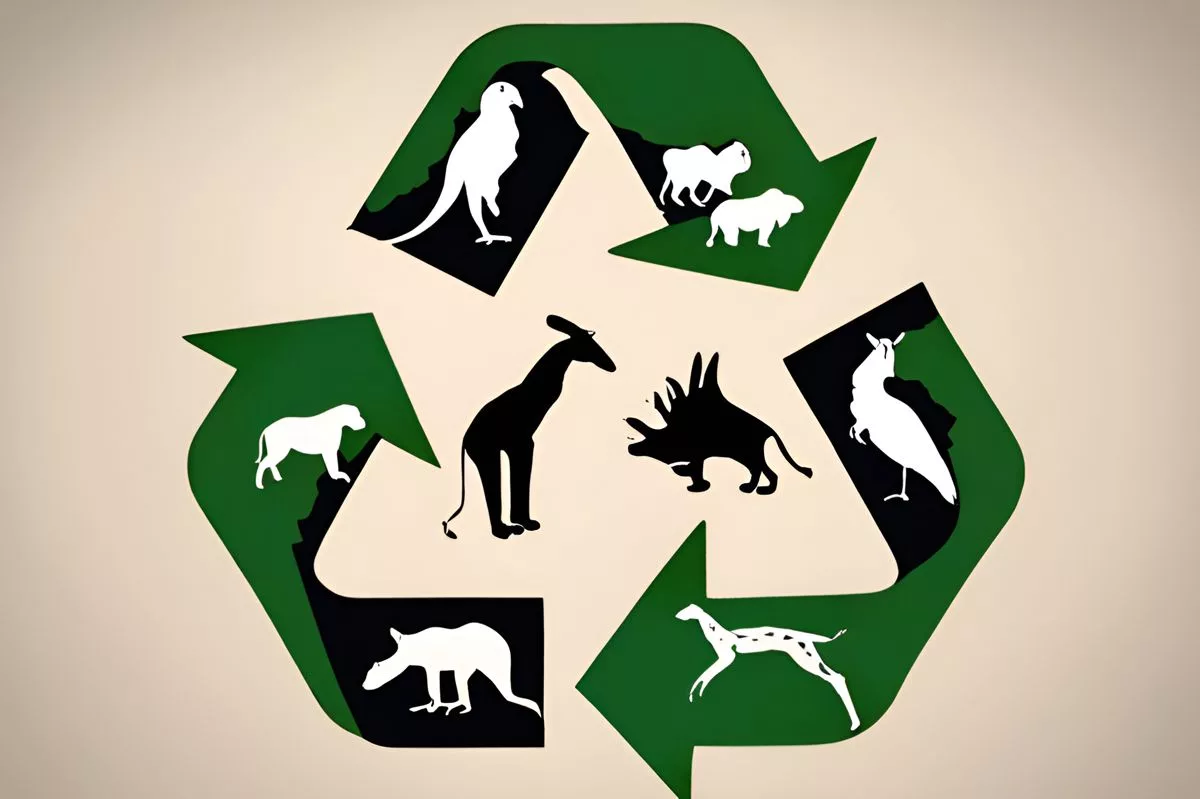South Africa is making significant contributions to the global fight against plastic pollution by participating in the Intergovernmental Negotiating Committee’s fourth session (INC-4) in Ottawa, Canada. With a deep understanding of the harmful impacts of plastic pollution on land, water, and marine ecosystems, South Africa is committed to implementing strategies that bolster waste management services, encourage recycling systems and raise public awareness through cleanup campaigns. The country’s negotiation strategy is fortified by its Constitution’s pledge to safeguard an unspoiled environment and protect it from plastic pollution.
South Africa’s Contributions to International Plastic Pollution Regulations
South Africa’s participation in the Intergovernmental Negotiating Committee’s fourth session (INC-4) is a significant stride forward in the global fight against plastic pollution. The session aims to formulate an enforceable global instrument to cut down plastic pollution. South Africa has a deep-seated understanding of the harmful impacts of plastic pollution on land, water, and marine ecosystems and is committed to implementing strategies that bolster waste management services, encourage recycling systems, and raise public awareness through cleanup campaigns.
South Africa’s Contributions to International Plastic Pollution Regulations
The global community has been steadfastly working towards mitigating the plague of plastic pollution, a shining beacon of hope amid the prevailing environmental turmoil. South Africa’s contributions in the worldwide efforts to curb this menace are noteworthy, particularly its participation in the Intergovernmental Negotiating Committee’s fourth session (INC-4). The session aims to formulate an enforceable global instrument to cut down plastic pollution.
INC-4 is a landmark event scheduled to take place in Ottawa, Canada, running from April 23rd to 29th, 2024. This significant convention is a progressive stride forward in the battle against plastic pollution, following the successful completion of INC-3 in 2023 focusing on compiling a revised draft as a foundation for future discussions.
During her opening speech at the National Stakeholder Consultation session preceding INC-4, Barbara Creecy, the Minister of Forestry, Fisheries and the Environment, underscored the significance of this groundbreaking session. She commended the influential contributions by the plastic and business industries, civil society, and labour unions in the development of this global tool.
South Africa’s Deep-Rooted Environmental Concerns
South Africa’s commitment to these global initiatives stems from a deep-seated comprehension of the harmful impacts of plastic pollution on land, water and marine ecosystems. The country, with a coastline stretching over 3,000 kilometres, is not merely theoretically invested in environmental sustainability; it has a responsibility to conserve its rich natural legacy.
The representatives of South Africa at the INC highlight a lifecycle-based approach to plastic products, valuing its adaptability but emphasizing the necessity for collaborative stakeholder involvement. The government has taken into account the viewpoints of all parties affected, leading to a balanced approach that reconciles the country’s industrial development with environmental preservation.
South Africa’s negotiation strategy is fortified by its Constitution’s pledge to safeguard an unspoiled environment and protect it from plastic pollution. This constitutional promise signifies a deep-seated comprehension of the need for sustainable industrial growth, particularly considering the planned expansion of the plastic industry within the national industrial policy framework.
South Africa’s Efforts Towards Sustainable Plastic Management
Focusing on the complete life cycle of plastic production, use and disposal, South Africa aims to implement strategies that bolster waste management services, encourage recycling systems and raise public awareness through cleanup campaigns. The goal of these initiatives is to establish a circular economy within the plastic industry.
The South African delegation is also committed to setting up international obligations and regulatory restrictions that require domestic adaptation to effectively mitigate plastic pollution. They insist on transparency in disclosing information about chemicals used in plastic manufacturing, highlighting the critical role of scientific research in determining the criteria for priority plastic products and their environmental effects.
The financial implications of these ambitious plans cannot be overlooked. It is essential to have strong financial frameworks to implement ambitious strategies to curb plastic pollution. Hence, securing predictable and ample financial resources is vital in addressing plastic pollution, especially in developing nations.
South Africa’s Commitment to Ending Plastic Pollution
As the world prepares for the crucial INC-4 session, South Africa is firm in its resolve to eradicate plastic pollution. With this impetus, the upcoming conference is set to provide a dynamic platform to refine textual alternatives, finalize compulsory measures and boost joint efforts to combat this urgent issue.
To conclude, guided by its constitutional obligations and global responsibility, South Africa is actively participating in international endeavors to reduce plastic pollution. The INC-4 session, a pivotal milestone in these efforts, unites varied stakeholders to develop an international tool that envisages a future with significantly reduced plastic pollution.
What is South Africa’s contribution to the global fight against plastic pollution?
South Africa is making significant contributions to the global fight against plastic pollution by participating in the Intergovernmental Negotiating Committee’s fourth session (INC-4) in Ottawa, Canada. The country is committed to implementing strategies that bolster waste management services, encourage recycling systems and raise public awareness through cleanup campaigns.
What is the Intergovernmental Negotiating Committee’s fourth session (INC-4)?
The Intergovernmental Negotiating Committee’s fourth session (INC-4) is a significant convention scheduled to take place in Ottawa, Canada, running from April 23rd to 29th, 2024. The session aims to formulate an enforceable global instrument to cut down plastic pollution.
Why is South Africa committed to ending plastic pollution?
South Africa’s commitment to ending plastic pollution stems from a deep-seated comprehension of the harmful impacts of plastic pollution on land, water and marine ecosystems. The country also has a constitutional obligation to safeguard an unspoiled environment and protect it from plastic pollution.
What strategies is South Africa implementing to manage plastic waste?
South Africa aims to implement strategies that bolster waste management services, encourage recycling systems and raise public awareness through cleanup campaigns. The goal of these initiatives is to establish a circular economy within the plastic industry.
What is South Africa’s negotiation strategy for plastic pollution regulations?
South Africa highlights a lifecycle-based approach to plastic products, valuing its adaptability but emphasizing the necessity for collaborative stakeholder involvement. The government has taken into account the viewpoints of all parties affected, leading to a balanced approach that reconciles the country’s industrial development with environmental preservation.
How will South Africa address the financial implications of its plastic pollution mitigation strategies?
Securing predictable and ample financial resources is vital in addressing plastic pollution, especially in developing nations like South Africa. Therefore, strong financial frameworks are essential to implement ambitious strategies to curb plastic pollution.










